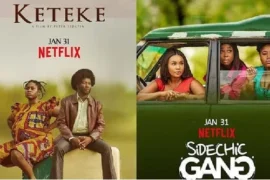Kente Cloth: The Symbol of Unity and Pride
Kente cloth is more than just a vibrant textile; it embodies the spirit of unity and pride within Ghanaian culture. As you explore its intricate kente patterns, you’ll find each design tells a story, rich with historical and cultural significance. The colors and motifs symbolize various values—love, wisdom, and resilience—that resonate deeply within the community. When you wear kente, you’re not just adorning yourself; you’re connecting with generations of heritage and tradition. This cloth serves as a visual language, expressing identity and social status during important life events, especially engagements.Engagement Rings: A Token of Commitment
When you think about engagement rings, you’re not just considering a piece of jewelry; you’re contemplating a powerful symbol of love and commitment. The design and ring styles reflect the unique bond you share. From classic solitaires to intricate vintage designs, each ring tells a story, capturing your journey together. The choice of metal, whether gold, silver, or platinum, adds another layer of meaning, representing durability and strength. As you slip the ring onto your partner’s finger, it signifies an unbreakable promise, transforming a simple ornament into a profound commitment symbol. It’s a reminder of the vows you’ll exchange, encapsulating your hopes for a shared future, and marking the beginning of a beautiful adventure together.Trendy, Gorgeous African Kente Styles for Ladies in 2025
What is the most gorgeous African kente style you have ever seen? Hold your response until you have seen the trendy kente styles we have rounded up for you. You might just adopt one of them as your new favorite kente style for ladies.
Traditional Drinks: The Essence of Hospitality
When you step into a Ghanaian home, the rich aroma of traditional drinks instantly envelops you, signaling warmth and hospitality. These beverages, often served during rituals and ceremonies, play an essential role in connecting families and celebrating moments. From the sweet, fermented taste of palm wine to the invigorating zing of sobolo, each sip invites you to partake in a vibrant cultural tapestry.Importance of Traditional Drinks
Traditional drinks hold a special place in Ghanaian culture, embodying the essence of hospitality that defines the nation. When you step into a Ghanaian home, you’re often greeted with an invigorating sip of these beverages, each crafted from traditional recipes passed down through generations. These drinks aren’t just refreshment; they carry deep cultural significance, reflecting the values and traditions of the community. Sharing a drink symbolizes unity and respect, creating bonds between hosts and guests. Whether it’s during celebrations or casual visits, these traditional drinks enhance the experience, inviting you to partake in the rich tapestry of Ghanaian life. Their flavors tell stories of heritage, making every drop a celebration of identity and warmth.Commonly Served Beverages
Ghanaian hospitality shines through in the variety of beverages served to guests, each with its own unique flavor and significance. Traditional beverages like palm wine, a natural ferment, embody celebration and connection, while sobolo, made from hibiscus leaves, offers a rejuvenating burst of sweetness, often symbolizing joy. You’ll find that these drinks carry deep cultural significance, reflecting the rich heritage of the Ashanti Akan people. Sharing a drink isn’t just about quenching thirst; it’s an invitation into a world of tradition and warmth. As you sip these delightful concoctions, you’re not just enjoying their unique tastes, but also participating in a timeless ritual, honoring the bonds of community and the spirit of togetherness that defines Ghanaian life.Rituals and Ceremonies
As you explore the vibrant tapestry of Ghanaian culture, you’ll discover that rituals and ceremonies come alive through the sharing of traditional drinks. These beverages, often crafted from local ingredients, serve as a cornerstone of engagement customs, symbolizing hospitality and unity. During ceremonies, you’ll witness how the act of pouring and sharing drinks fosters connections among families and friends, weaving a narrative of cultural significance. Each sip tells a story—whether it’s the rich taste of palm wine or the invigorating notes of sobolo. This communal experience not only honors ancestral traditions but also reinforces social bonds, creating lasting memories. At its core, these drinks are more than mere refreshments; they’re essential elements that enhance the spirit of celebration and togetherness.Cocoa and Other Gifts: Representing Wealth and Abundance
Cocoa, often referred to as “the gold of Ghana,” symbolizes more than just a crop; it embodies the wealth and abundance that permeate the country’s culture. When you present cocoa in an engagement, you’re not just giving a gift; you’re sharing a piece of Ghana’s heritage. The cocoa significance extends beyond its economic value; it represents prosperity and the hope for a fruitful future together. Alongside cocoa, other gifts, such as textiles and gold, enhance the gift symbolism, showcasing the family’s status and commitment. Each item thoughtfully chosen speaks volumes about love, respect, and shared dreams. As you navigate these customs, remember that every gift carries a deeper meaning, weaving together the tapestry of your union and cultural identity.The Bride’s Attire: A Reflection of Cultural Identity
When you see a Ghanaian bride adorned in vibrant Kente cloth, you’re witnessing more than just fabric; you’re glimpsing a rich tapestry of cultural identity. Each accessory and adornment she wears carries significance, enhancing her beauty while telling a story of tradition and heritage. The colors chosen reflect deep symbolism, allowing you to appreciate the profound connections between attire and the values celebrated in Ghanaian culture.Most Beautiful Kente Styles For Traditional Marriage 2025
Kente styles for traditional marriages are being modernized as fashion designers and couples try to add culture and beauty to their special day. The above kente designs are some of the best out there.
Traditional Kente Cloth Significance
While many cultures have unique wedding attire, the traditional Kente cloth worn by Ghanaian brides stands out as a vibrant symbol of cultural identity and heritage. Originating from the Ashanti and Ewe people, Kente’s intricate patterns and colors convey deep meanings, reflecting history, proverbs, and social status. As you don this beautiful fabric, you’re not just wearing a dress; you’re embracing a legacy of craftsmanship and storytelling. Each strip of Kente tells a tale, connecting you to your ancestors and the rich traditions of your people. The cultural significance of Kente goes beyond aesthetics; it embodies unity, pride, and resilience. When you walk down the aisle in Kente, you’re carrying forward a profound connection to your roots.Accessories and Adornments Importance
As you prepare for your wedding day, the accessories and adornments you choose become essential extensions of your cultural identity, harmonizing with the traditional Kente cloth to create a stunning visual narrative. These adornment styles, from intricate gold jewelry to beautifully woven beads, carry profound cultural significance, reflecting your heritage and personal story. Each piece you select tells a tale—perhaps a necklace symbolizing unity or earrings representing elegance.Symbolism in Color Choices
Color plays a pivotal role in reflecting the cultural identity of a bride on her wedding day. Each hue she chooses carries profound color meanings and cultural significance that resonate with her heritage. For instance, vibrant reds symbolize love and passion, while royal blues often represent peace and stability. As you observe the bride’s attire, notice how the selected colors echo her personal story and family traditions. The intricate patterns woven into her fabric also highlight the community’s values.The Elder’s Blessing: Seeking Wisdom and Guidance
In seeking the elder’s blessing, you commence on a journey steeped in reverence and tradition, where wisdom flows like a sacred river through generations. Here, elder wisdom becomes your guiding light, illuminating the path ahead. Engaging in guidance rituals, you gather in the presence of respected elders, whose life experiences enrich your understanding of love and commitment. You listen intently as they share stories and offer insights, each word steeped in cultural significance. The atmosphere buzzes with anticipation, as their blessings not only affirm your intentions but also weave you into the fabric of your community. This sacred exchange fosters unity, ensuring that the foundation of your engagement is built on principles that echo through time, binding past, present, and future.Drumming and Dancing: Celebrating the Union With Joy
Drumming and dancing pulse through the heart of Ghanaian engagement celebrations, infusing the atmosphere with an infectious energy that ignites joy. As you immerse yourself in the rhythmic beats, you’ll notice the intricate drumming techniques that tell stories of ancestry and unity. Each stroke of the drum resonates with the cultural significance of the occasion, reminding everyone present of their shared heritage and the bonds being forged. The dancers, adorned in vibrant attire, move with grace, embodying the spirit of celebration and communal togetherness. Their synchronized movements invite you to join in, to feel the collective heartbeat of love and partnership. In these moments, you witness not just a celebration but a profound expression of identity and connection.Conclusion
In the heart of the Ashanti Akan engagement ceremony, each item tells a story, weaving together tradition and modernity. From the vibrant Kente cloth that wraps around the couple, symbolizing unity, to the meaningful gifts that echo prosperity, every element enhances the celebration. As you witness the drumming, dancing, and blessings from elders, you can’t help but feel the profound connections being forged. This vibrant tapestry of culture is not just a ceremony; it’s a beautiful rite of passage.Discover more from Ghana Scoop
Subscribe to get the latest posts sent to your email.




